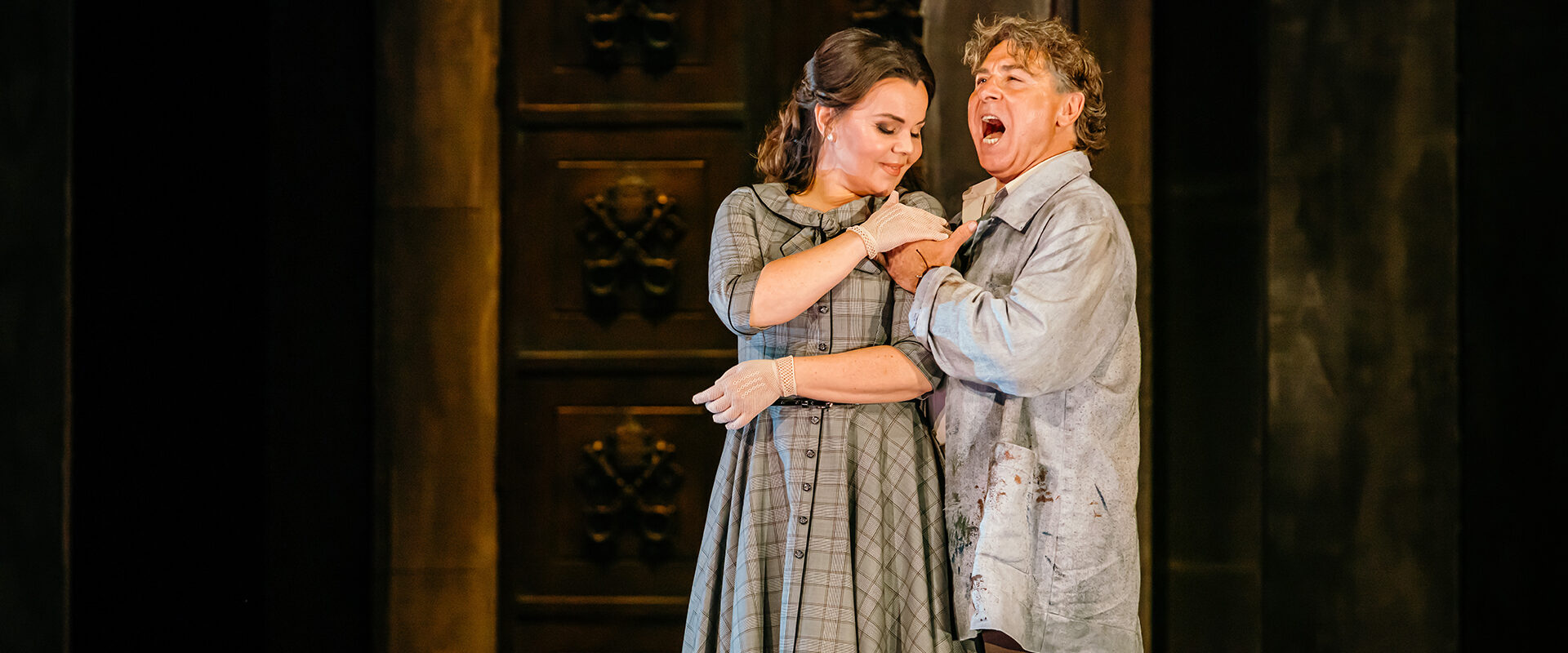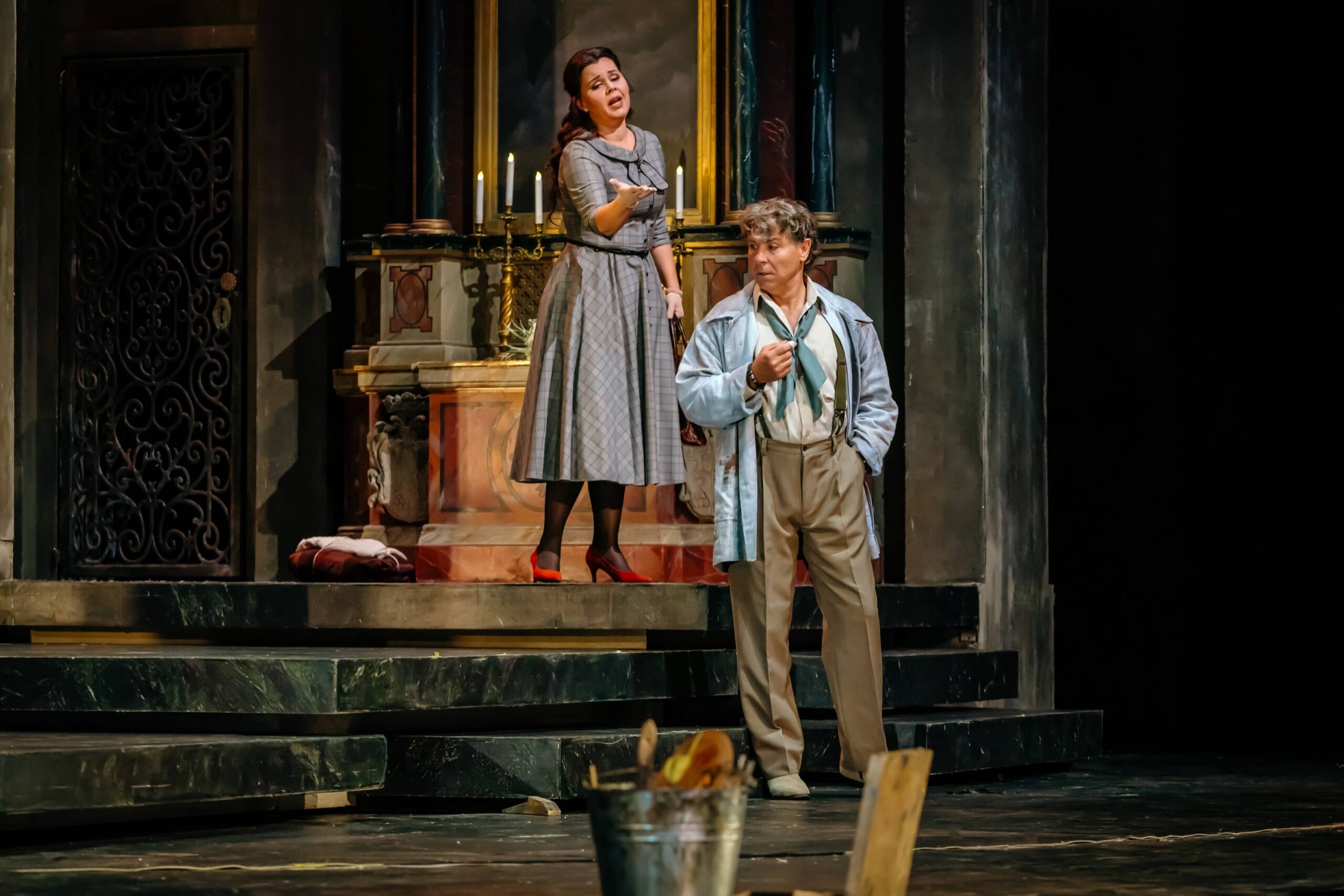 “Tosca” from the Wrocław Opera with Aleksandra Kurzak and Roberto Alagna in Polish cinemas in October
“Tosca” from the Wrocław Opera with Aleksandra Kurzak and Roberto Alagna in Polish cinemas in October
On May 31, soprano Aleksandra Kurzak and tenor Roberto Alagna performed in the Wrocław Opera’s production of Giacomo Puccini’s “Tosca.” The footage of the show will be screened in Polish cinemas in October.
Aleksandra Kurzak began her singing career 25 years ago at the Wrocław Opera. Since then, she has performed at the Metropolitan Opera in New York, the Opéra national de Paris, the Staatsoper in Vienna, La Scala in Milan and the Gran Teatre del Liceu in Barcelona. In 2012, she sang Adina in “Les d’Amore” by Gaetano Donizetti at the Royal Opera House Covent Garden in London. The show featured French tenor of Italian origin – Roberto Alagna as Nemorino. The couple fell in love and got married three years later.
The Wrocław Opera has been the first in history to decide to show its production in movie theatres. We are happy to offer our audience an opportunity to see this powerful staging of “Tosca” with such wonderful singers. Music lovers will certainly appreciate the show, especially since the production with this cast was performed only twice and the tickets sold out quickly although they were not the cheapest. Thanks to cinema screenings, fans of Aleksandra Kurzak, Robert Alagna and the opera genre will be able to enjoy Wrocław’s “Tosca” even in small towns – says Bartłomiej Majchrzak, distribution director at KinoMaestro.pl.
The performance was directed by Michael Gielet, the sets and costumes were designed by Gary McCann. Giorgio Croci conducted on the podium. Mikołaj Zalasiński played the role of Baron Scarpia.
Screenings begin on October 6, and the list of cinemas will be published on the website www.kinomaestro.pl in August.
Following the 1900 premiere in Rome, “Tosca” quickly became a staple of the operatic repertoire. The libretto tells the story of two lovers: a painter (Mario Cavaradossi) and an opera singer (Floria Tosca), who become embroiled in the political conflict between a political fugitive (Cesare Angelotti) and the local police prefect (Baron Scarpia). The greatest arias from “Tosca” include “E lucevan le stele” and “Vissi d’arte”.
From the moment the curtain rises, Puccini engages the audience with five characteristic chords that are associated with the evil of Scarpia, the infamous police prefect. His desire for Floria Tosca knows no limits.



